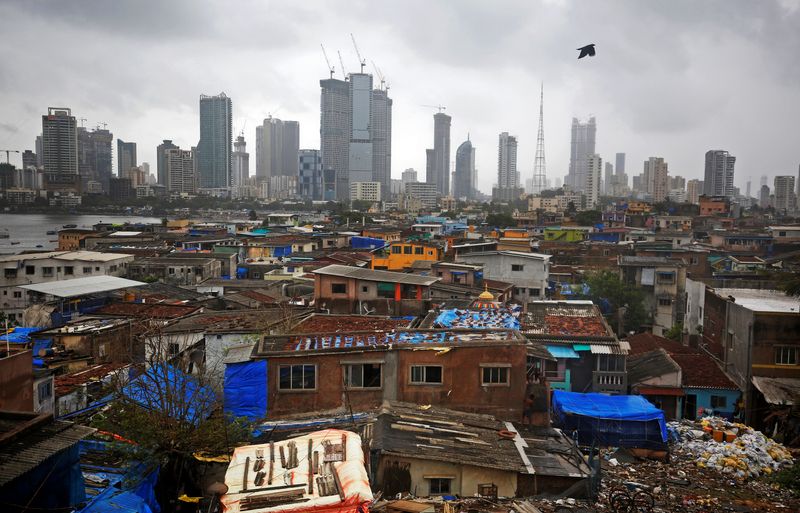India to hold top spot for economic growth but risks to downside remain
2023.09.26 23:56

© Reuters. FILE PHOTO: A bird flies across central Mumbai’s financial district skyline, India, June 18, 2019. REUTERS/Francis Mascarenhas/file photo
By Milounee Purohit
BENGALURU (Reuters) -India will be the fastest-growing major economy this fiscal year, supported by government spending ahead of May’s general election, according to a Reuters poll of economists who did say the forecast risks were skewed to the downside.
While Narendra Modi’s government increased spending in the past few years to build roads, railways, and other infrastructure, helping India defy the global slowdown trend, it has so far failed to create enough jobs.
Asia’s third-largest economy will grow 6.2% in the fiscal year ending in March 2024 and 6.3% next, the same as predicted last month, according to the median forecasts in the Sept. 20-26 poll of 65 economists.
Forecasts for this fiscal year ranged widely from 4.6% to 7.1%.
But most economists said expected growth was still well below potential and a drier than normal monsoon season so far could act as a restraint in an economy where agriculture employs about half the workforce in a country of over 1.4 billion people.
After a stellar 7.8% expansion last quarter, economic growth was expected to moderate to 6.4% this quarter and then drop to 6.0% in the October-December period before slowing to 5.5% in early 2024.
“We all know the big picture story is very positive, but I feel like discussions about economic growth often get lost between the cyclical and the structural and at the moment, we’re definitely in a cyclical slowdown,” said Miguel Chanco, chief emerging Asia economist at Pantheon Macroeconomics.
“A lot of the drivers that drove the really strong growth from the middle of 2021 to last year have been exhausted. A weak external backdrop is weighing on Indian economic growth as well as sluggish private consumption and sluggish investment.”
A majority of economists, 22 of 36, who answered an additional question said the risks to their FY 2023/2024 GDP growth forecasts were skewed to the downside.
RBI’S NEXT MOVE?
While the poll showed India’s retail inflation would average 5.5% this fiscal year and 4.8% next, above the RBI’s medium-term target of 4%, over two third of economists, 23 of 34, said the risks were skewed that it would be higher.
Even though inflation was not expected to reach that goal across the forecast horizon, economists expect the next move from the Reserve Bank of India to be a cut.
Nearly 60% of economists, 28 of 48, forecast the RBI to have cut rates by at least 25 basis points before July with the median putting it at 6.25% in the second quarter of next year.
That’s around the time when its global peers were expected to cut rates.
All but one of the 71 economists surveyed said the RBI would keep its key repo rate unchanged at 6.50% at the conclusion of the Oct. 4-6 meeting, with one expecting a 25 basis point hike. Median forecasts showed it staying there for the rest of this fiscal year.
“The RBI will likely tolerate supply-driven inflationary pressures as long as core prices continue to ease but will monitor the development of inflation expectations closely,” said Alexandra Hermann, lead economist at Oxford Economics.
“We still expect a rate cut early in 2024, although recent inflationary trends are making it increasingly likely that a policy tilt will be pushed back. Government measures should cool food prices in the coming months, but rising oil prices will likely place upward pressure on headline inflation.”
(For other stories from the Reuters global economic poll:)








